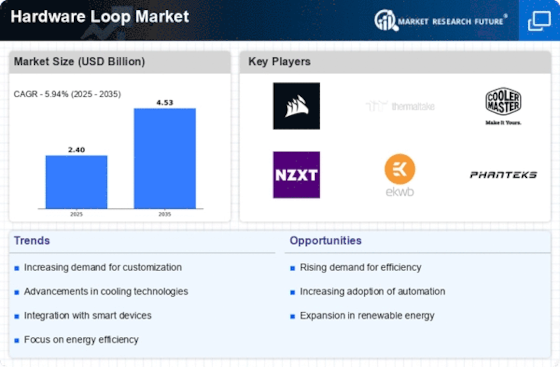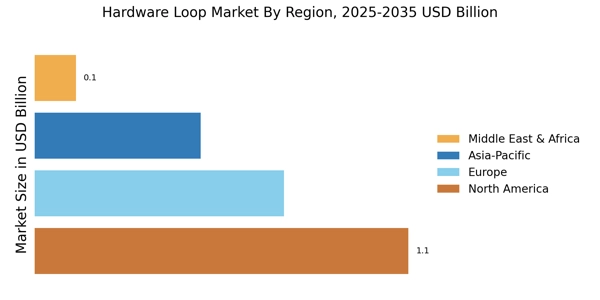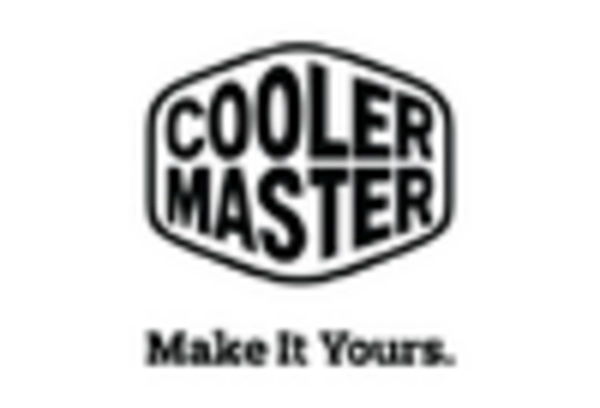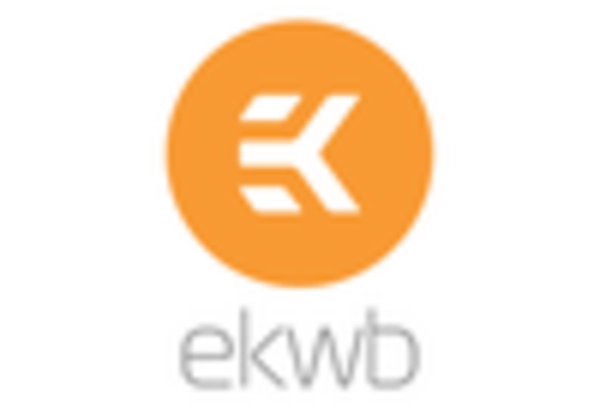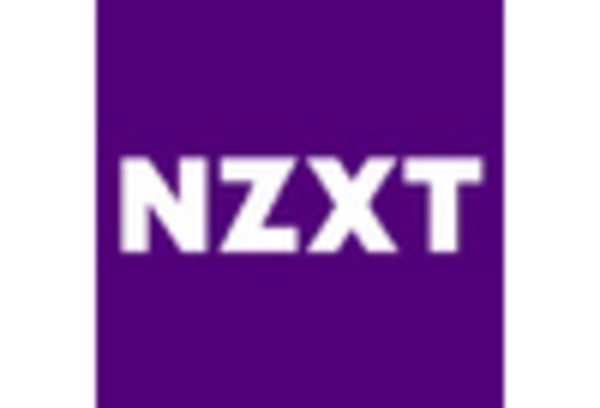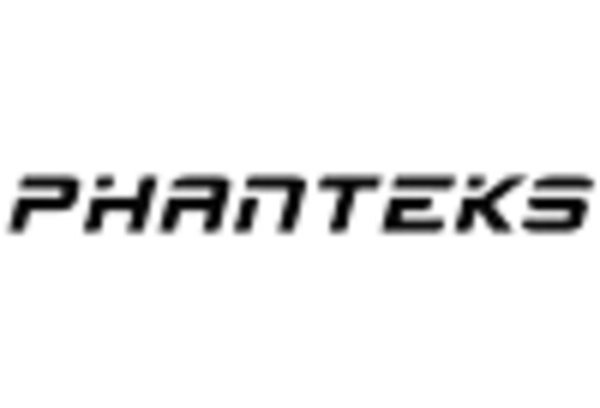Growing Adoption of Cloud Computing
The growing adoption of cloud computing significantly impacts the Hardware Loop Market, as organizations increasingly migrate to cloud-based solutions. This shift necessitates robust cooling systems to support the high-density server environments typical of cloud data centers. As businesses expand their cloud capabilities, the demand for efficient hardware loops that can manage heat dissipation effectively is expected to rise. Market analysts project that the cloud computing sector will continue to grow at a rate of 15% annually, driving the need for advanced cooling solutions. Consequently, the Hardware Loop Market must adapt to these changing requirements, ensuring that products are capable of supporting the evolving landscape of cloud infrastructure.
Increased Focus on Energy Efficiency
The Hardware Loop Market is increasingly shaped by a focus on energy efficiency, as both consumers and businesses seek to reduce operational costs and environmental impact. With energy prices fluctuating and sustainability becoming a priority, the demand for energy-efficient hardware solutions is on the rise. In 2025, it is anticipated that energy-efficient cooling systems will account for over 60% of the market share, reflecting a shift towards more sustainable practices. This trend compels manufacturers to innovate and develop hardware loops that not only meet performance standards but also adhere to energy efficiency regulations. As a result, the Hardware Loop Market is likely to see a proliferation of products designed to minimize energy consumption while maximizing cooling effectiveness.
Rising Demand for Efficient Cooling Solutions
The Hardware Loop Market experiences a notable increase in demand for efficient cooling solutions, driven by the growing need for high-performance computing systems. As data centers expand and the complexity of computing tasks escalates, the necessity for effective thermal management becomes paramount. In 2025, the market for cooling solutions is projected to reach approximately 10 billion dollars, reflecting a compound annual growth rate of around 8%. This trend indicates that consumers and businesses alike are prioritizing hardware that can maintain optimal temperatures, thereby enhancing performance and longevity. Consequently, manufacturers are innovating to provide advanced hardware loop systems that integrate seamlessly with existing infrastructures, ensuring that the Hardware Loop Market remains competitive and responsive to evolving technological demands.
Technological Advancements in Hardware Design
Technological advancements in hardware design significantly influence the Hardware Loop Market, as innovations lead to more efficient and compact cooling systems. The integration of advanced materials and design methodologies allows for the development of hardware loops that not only improve thermal performance but also reduce energy consumption. In recent years, the introduction of smart sensors and IoT capabilities has enabled real-time monitoring and management of cooling systems, enhancing their efficiency. As a result, the market is expected to witness a surge in the adoption of these advanced systems, with estimates suggesting a growth rate of 7% annually. This evolution in hardware design is likely to attract a broader range of consumers, further propelling the Hardware Loop Market forward.
Emergence of AI and Machine Learning Technologies
The emergence of AI and machine learning technologies is poised to transform the Hardware Loop Market, as these innovations require sophisticated cooling solutions to manage the heat generated by high-performance computing tasks. As AI applications become more prevalent across various sectors, the demand for hardware capable of sustaining intensive workloads is likely to increase. In 2025, the market for AI-driven hardware is expected to grow by approximately 20%, necessitating advanced cooling systems that can efficiently handle the thermal output. This trend suggests that manufacturers in the Hardware Loop Market must prioritize the development of innovative cooling solutions tailored to the unique demands of AI and machine learning applications, ensuring they remain competitive in a rapidly evolving technological landscape.

